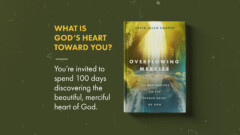It was at least six months ago that someone asked me a question I’ve thought a lot about since then. And yet, despite thinking about it a great deal, I haven’t reached a really satisfactory conclusion. So I thought I would open discussion here and perhaps between the group of us we can reach some good conclusions (or conclusions that have been better than mine, at any rate).
The question was simply this: is error in doctrine always sin? It is obvious that a person who preaches that Jesus Christ was something other than divine is teaching a terrible and divisive heresy and that this error is sinful. A person who teaches that homosexuality is a legitimate lifestyle that the Bible does not condemn is likewise teaching grievous error and error that can be easily proven from the Bible. But what happens when the error deals with issues of lesser consequence? What happens when one teacher preaches a sermon defending credobaptism while another preaches a sermon defending paedobaptism? Obviously one of the two men must be wrong. But is one of them being sinful in teaching what is wrong? I think also of an issue like eschatology where two very fine and godly men may have completely different understandings of the end times. When they teach their differing conclusions, is one of them being sinful?
While this may seem like a petty issue, I believe it matters as it will necessarily impact how we relate to fellow Christians who differ from us on secondary issues. If I feel that my friend is being sinful by teaching paedobaptism, I will want to work with him to correct this error. But if I believe that his belief in paedobaptism is something less than sin, I can appreciate his conviction while not feeling the need to bring correction.
There are three principles I’ve drawn up that seem to be relevant to this issue.
First, it is clear to me that, regardless of whether or not error in doctrine is always sin, error in doctrine is always a consequence of sin. It seems clear that when the Lord returns and we join Him in heaven, there will no longer be disagreements about doctrine. Disagreements about baptism, eschatology and other issues will be put away once and for all.
Second, there are other consequences of sin for which we are not judged. For example, the cold that has incapacitated my wife for the past few days is a consequence of sin but God does not hold her responsible for that cold or consider her morally culpable for it. If there was no sin in the world there would be no illness. The boy who is born with a mental disability suffers a lifelong consequence of sin, but not one for which God holds him culpable.
Third, God has given us a conscience, something that would not seem to be necessary if there were never times where we need to make a judgment call rather than relying on what we know to be perfectly clear. While I am convinced that the Bible is just as clear as it needs to be for us to understand it, human reasoning has been so incapacitated by our fall into sin that we make a mess of it, bringing confusion where there should be clarity. And it is here, on the issue of conscience, that I have paused the longest. The Bible tells us that we are to heed the conscience and that to violate it is to commit sin.
Of course our conscience is developed as we grow in godliness and as we learn to heed the Word of God. John MacArthur says “When we live in the Spirit, walk in the Spirit, and obey the Spirit, we can trust our conscience because it is under divine control. The Spirit’s perfect prompting will either commend or condemn what we are doing or are planning to do.” But still, two men who have dedicated a lifetime to humbly studying the Scripture can arrive at radically different conclusions. And God tells both of these men to heed conscience. It seems to me that God, in His sovereignty, has decreed here that some of the consequences of sin must be settled by conscience and that He will not hold people accountable (or as accountable) for what they do based on a conscience that is fed by Scripture. One of Martin Luther’s more famous sayings is “My conscience is captive to the Word of God.” That is something we are all to strive for and something the Bible commands. Is this not God’s admission that there will be times that we disagree and times that we will have to heed conscience, even if we disagree?
But this is as far as I’ve been able to extend my thought on this one. I would tend towards saying that no sin is being committed when two pastors follow their conscience, one to baptizing infants (presuming that this is not a Catholic-style baptism for salvation) and another to baptizing only believers. But I’d be interested in your feedback.










